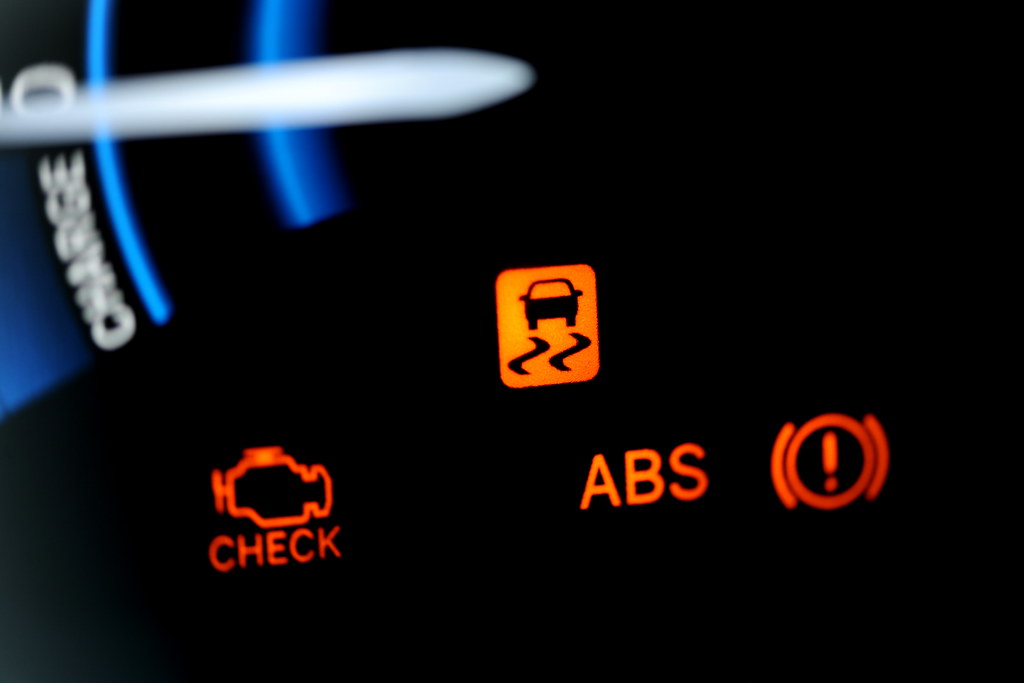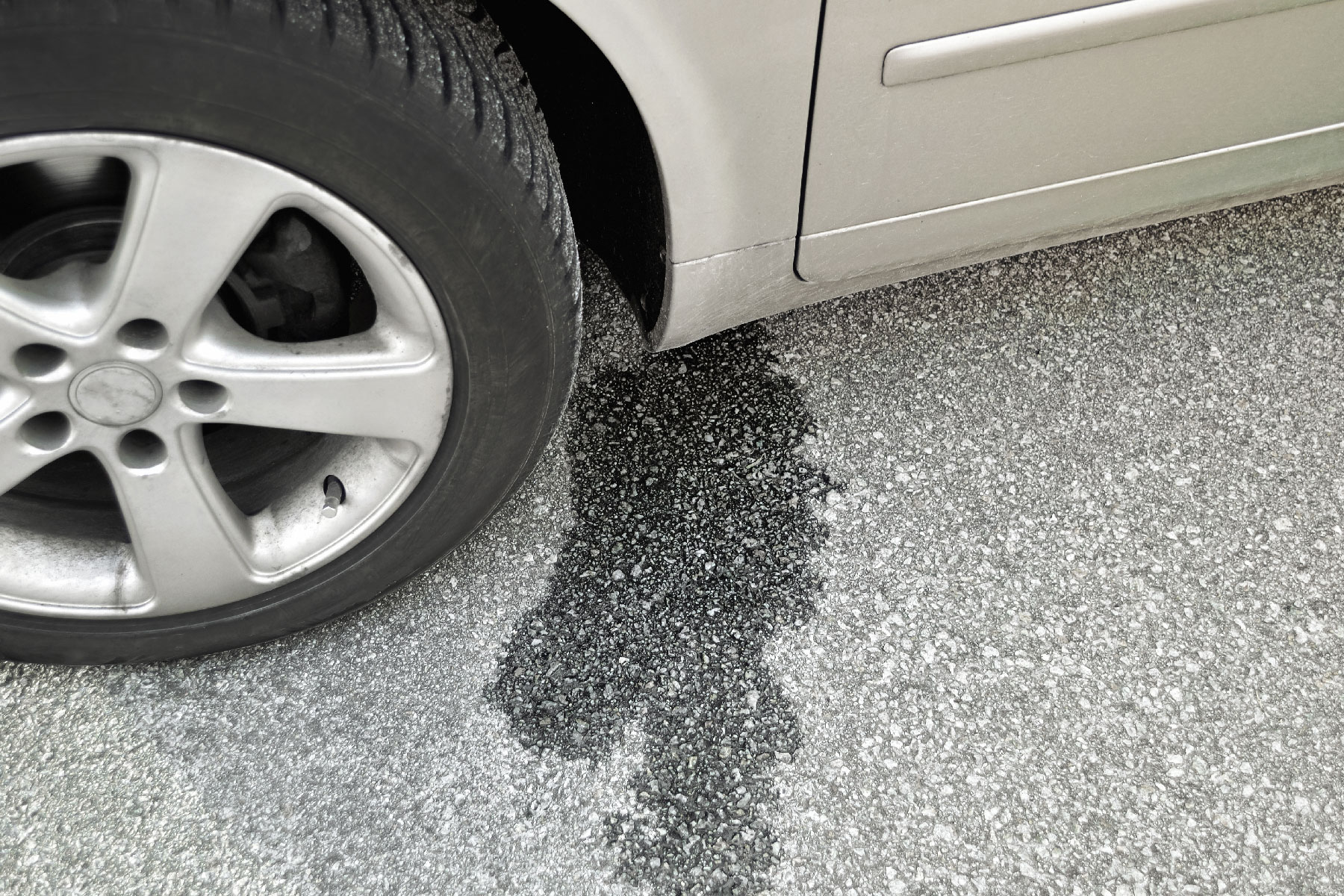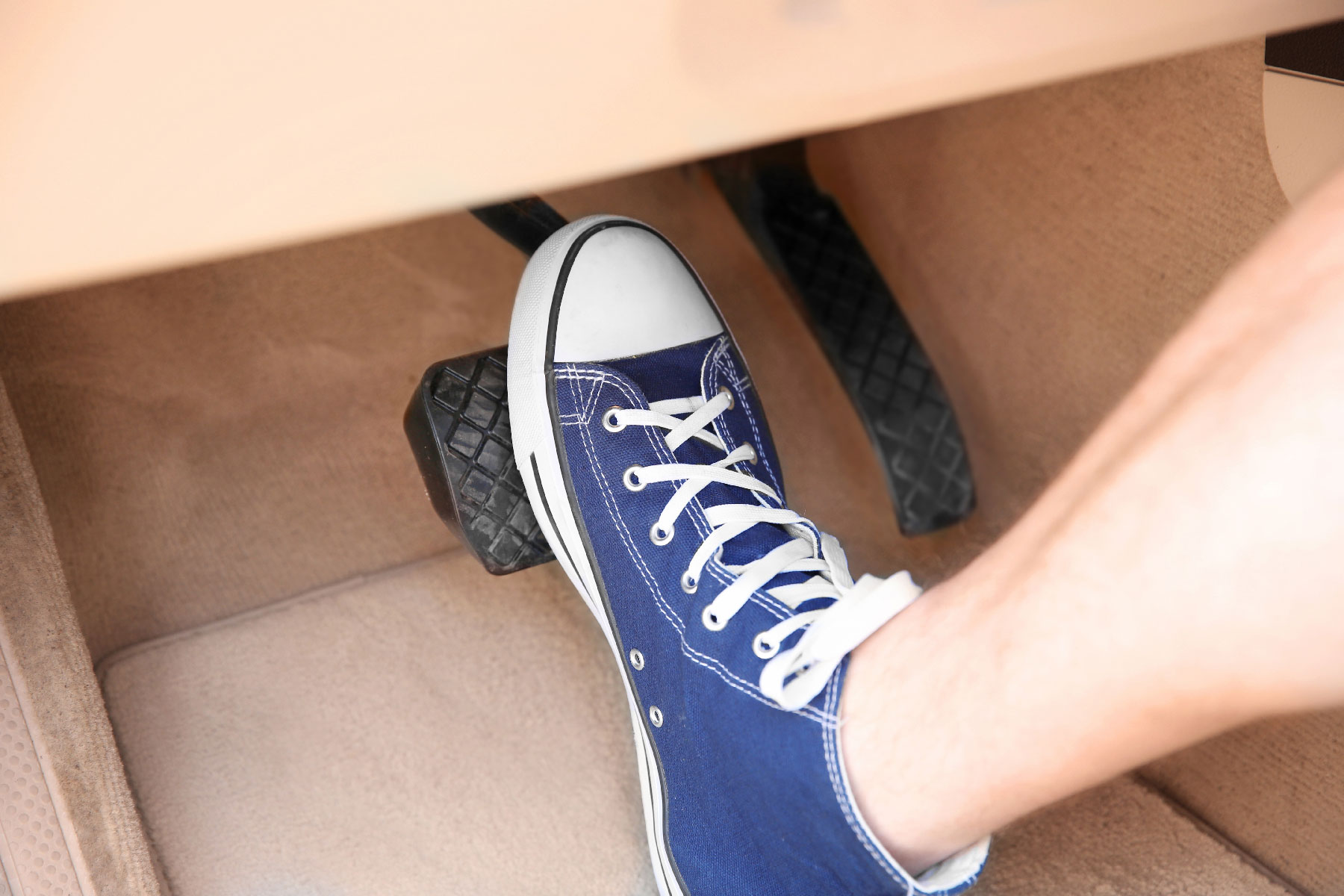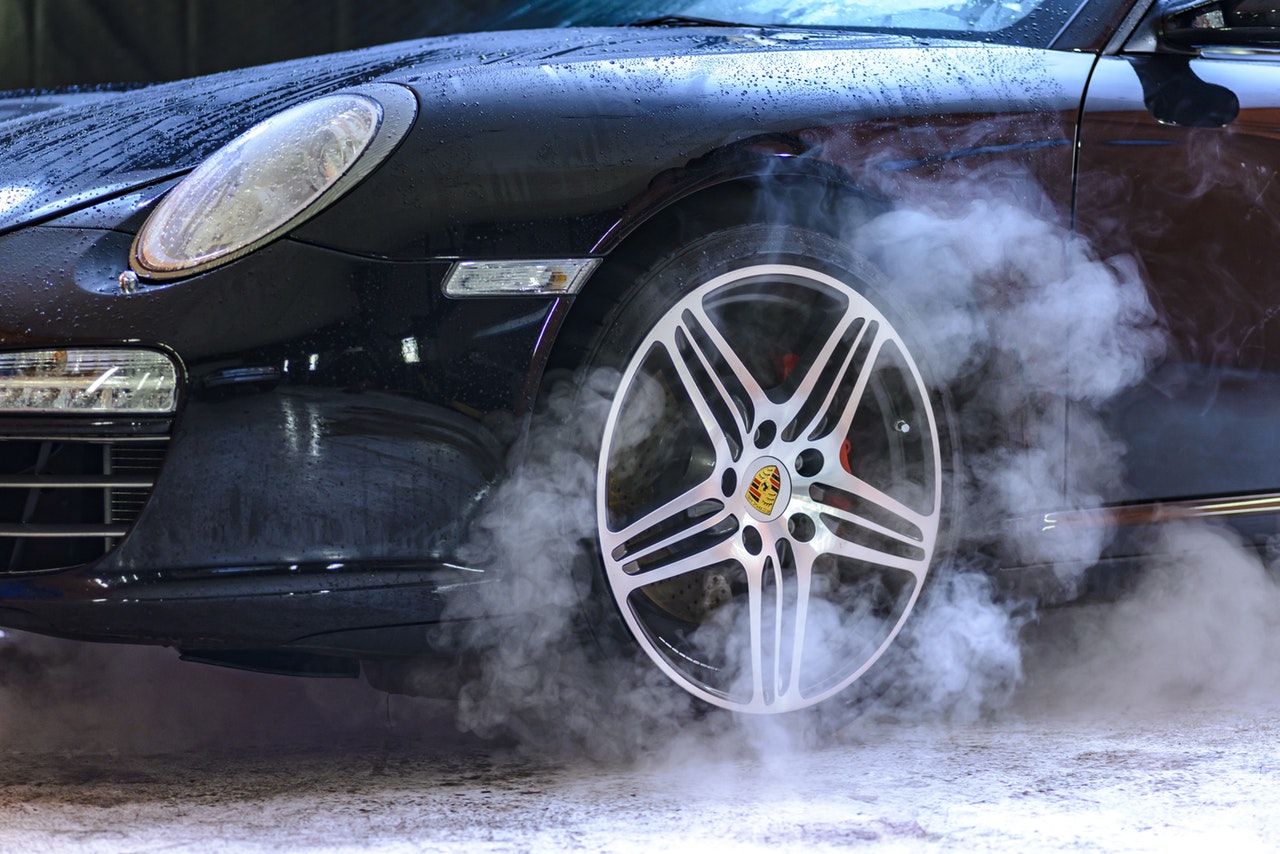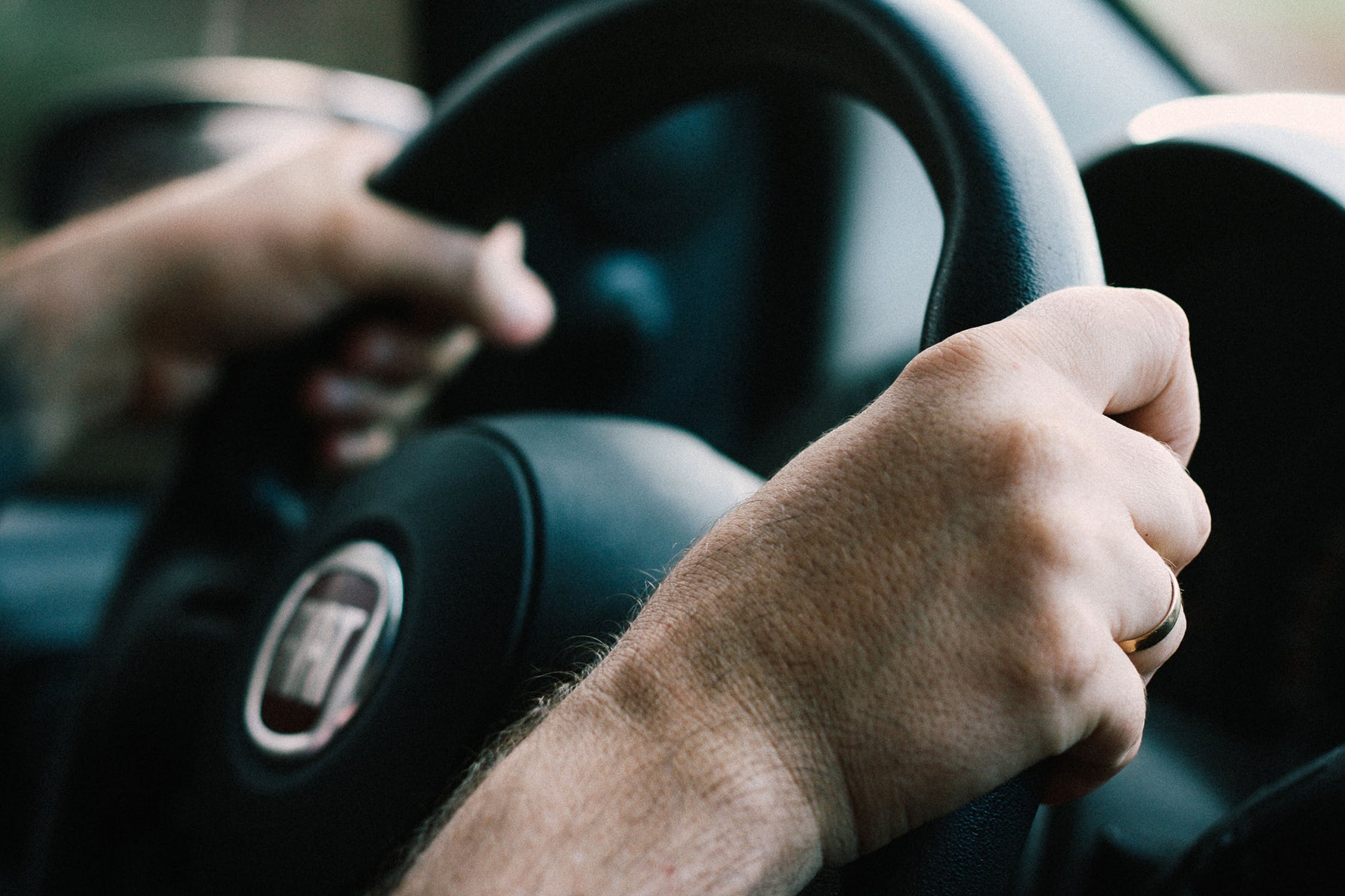According to the National Motor Vehicle Crash Causation Survey, brake failure accounts for roughly 22% of all accidents caused by vehicular problems, rather than driver error. While driving safely is half the battle, maintaining the safety systems of your vehicle is crucial, starting with your brakes. Below, we lay out seven common signs and symptoms of unsafe brakes.
1) Your Brake Light Is On
One of the easiest indications that your brakes are in need of help is when your brake warning light appears on your dash. In fact, most modern vehicles have two different warning lights that can appear on the dash for various reasons. If you have a brake light on the two options are your Antilock Braking System (ABS) or the brake system warning light. If you're seeing an ABS warning light on your dash, you need to take your vehicle into a local dealer or repair shop, as they're equipped with the right equipment.
Your brake light won't always come on when there is an issue — it's also the light that appears on your dash when your parking brake is engaged. But if you're seeing a brake warning light and your parking brake isn't engaged, it's time to have a brake specialist take a look at your system to diagnose your issues.
2) Squealing, Squeaking or Grinding Noises
Squealing/High-Pitched Metallic Noises
If you're hearing a metallic squealing sound when you apply your brakes, you're likely hearing the wear indicators on your brake pads. While annoying, it's not always a sign of damage, but rather just that it's time to replace your brake pads. Once you begin to hear the noises, don't hold off on replacing your pads, as letting them wear down further can lead to damaged rotors and a way more expensive repair. The good news is that brake pads are one of the more affordable brake repairs you can have.
Grinding Noises
If you do allow your brake pads to fully wear down past their useful life, you'll begin to hear a metal on metal grinding noise, which means you're beginning to damage your rotors. If you're experiencing grinding, contact a brake specialist as soon as possible to ensure you don't cause further damage to your braking system.
3) Vibration When Braking (Or In Your Steering Wheel)
Shaking steering wheels or vibration when braking is often a sign of warped rotors. Rotors are the large silver discs that sit behind your wheel or rim. When you press the brake pedal, your brake pads squeeze the rotor and ultimately stop your vehicle.
When your rotors are warped or uneven, they'll begin to interfere with your braking system and creating the vibrations you feel. You'll want to fix this by having a shop resurface your rotor or replace it all-together. Resurfacing is the process of smoothing or evening out your rotor, and is done by shaving off uneven parts of the rotor and isn't always the safest solution. Often times a new rotor doesn't cost much more than resurfacing one and helps save you some money in the long run.
4) Leaking Fluid
Leaking brake fluid is often indicative that your master cylinder needs to be replaced. The master cylinder is where your brake fluid sits, and all your braking power comes from the hydraulic pressure created between the cylinder and brake lines.
If you're leaking fluid, chances are you won't be able to stop your vehicle as easily. Let a brake specialist examine your fluid levels and braking components to make sure you don't lose all of your braking abilities.
5) Spongy or Soft Brake Pedal
If you're experiencing a "soft" pedal when you apply your brakes or your brake pedal pushes all the way down the the floor, you need to have someone check on your brakes ASAP. It's often a sign that you have moisture in your brake system or your master cylinder isn't functioning correctly and needs immediate attention to ensure the safety of both yourself and those driving around you.
6) Burning Smell While Driving
A burning smell coming from your wheels and brakes means you could have overheated your brakes or clutch, and continuing to drive can lead to total brake failure. If you begin to smell or see smoke appearing from your brakes, pull over immediately and inspect your brakes.
7) Car Pulling to One Side When Braking
A pulling sensation to one side while braking usually means you've got a caliper or faulty brake hose, which is causing uneven pressure to one side. Often times you'll need a brake specialist to diagnose the exact issues, so try to get it to a local shop or service as soon as possible.
Experiencing Brake Problems?
If you're experiencing any of the above symptoms, it's time to have your brakes checked out. At NuBrakes, we provide unmatched convenience and affordable repairs — all handled by brake technicians with decades of experience. Get a free brake repair estimate or schedule service by giving us a call at (855) 800-5629
